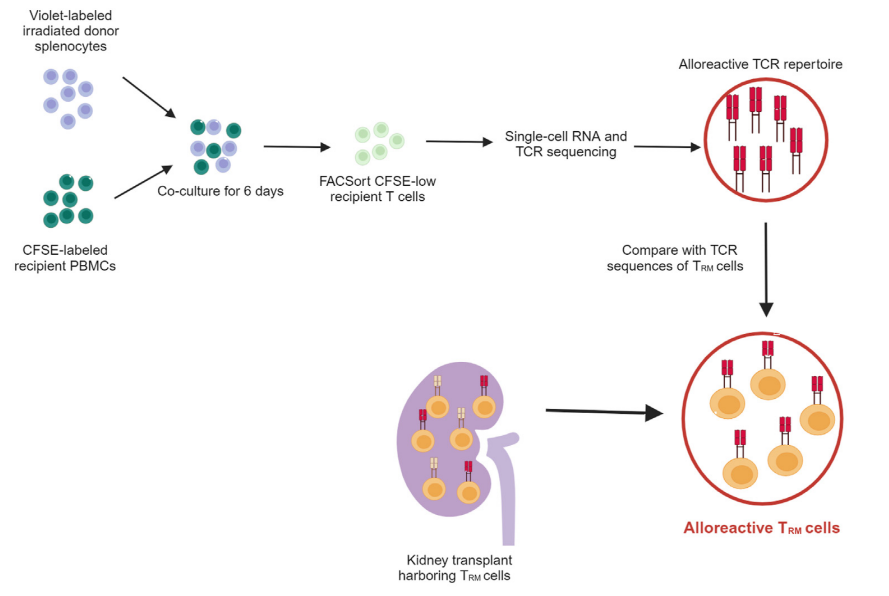Tissue-resident memory T cells in human kidney transplants have alloreactive potential
Hector Tejeda1, Daphne Hullegie-Peelen1, Marjolein Dieterich1, Sebastiaan Heidt1, Martin J. Hoogduijn1, Dennis A. Hesselink1, Carla C. Baan1.
1Internal Medicine, Erasmus MC Transplant Institute, Rotterdam, Netherlands
Introduction: The extent to which tissue-resident memory T (TRM) cells in transplanted organs possess alloreactivity is unknown. This study investigates the alloreactive potential of TRM cells in kidney explants from four patients who experienced severe acute rejection leading to graft loss.
Methods: Alloreactive T-cell receptors (TCRs) were identified in pre-transplant blood samples through mixed lymphocyte reactions, followed by single-cell RNA and TCR sequencing (10x Genomics) of the proliferated recipient T cells. Subsequently, these TCR clones were traced in the TRM cells of kidney explants, which were also subjected to single-cell RNA and TCR sequencing (10x Genomics).
Results: The proportion of TRM cells expressing an alloreactive TCR in the four kidney explants varied from 0% to 9%. Notably, these alloreactive TCRs were predominantly found in CD4+ and CD8+ TRM cells with an effector phenotype, as shown by expression of. LTB, FTH1, KLRB1, among other characteristic effector T cell genes. Intriguingly, alloreactive clones were present not only in recipient-derived TRM cells but also in donor-derived TRM cells, constituting up to 4% of the population of donor T cells, suggesting the presence of self-reactive TRM cells.
Conclusions: Overall, our study demonstrates that alloreactive T cells present in the peripheral blood prior to transplantation can infiltrate the kidney transplant and display a TRM phenotype. Moreover, our study reveals the existence of donor TRM cells that may exhibit self-reactive potential within the transplant.

[1] Tissue-resident Memory T cells
[2] Alloreactivity
[3] Graft Rejection
